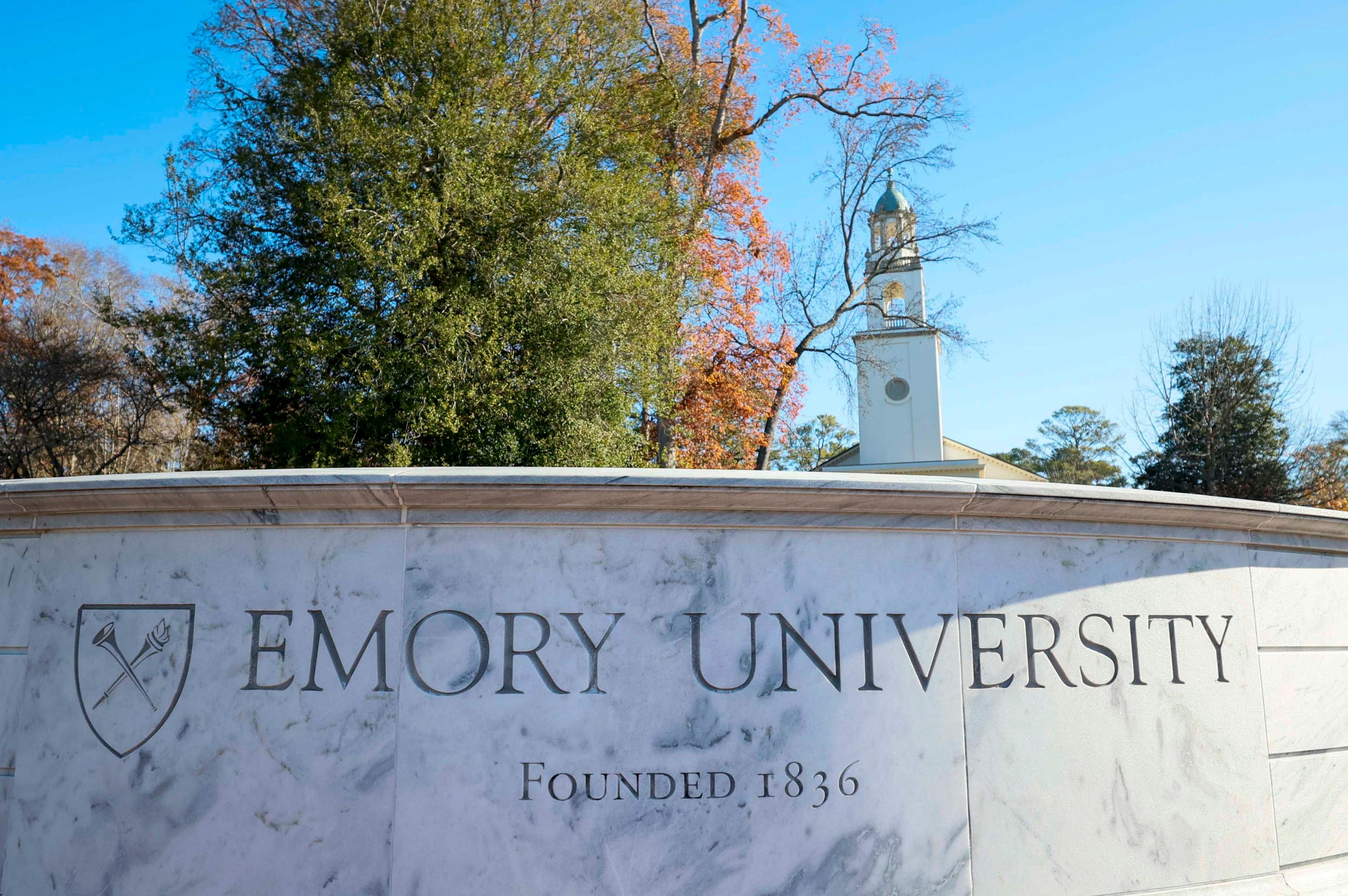Boos, cheers and kaffiyehs worn in silent protest at Emory commencement





















Emory University held its undergraduate commencement at Gas South Arena in Gwinnett County in a ceremony Monday morning that did not include the kinds of major anti-war demonstrations that have rattled the school in recent weeks.
The 90 minute ceremony concluded shortly after 10 a.m. with blue and yellow streamers — the university’s colors — cascading through the dimly-lit arena and students heading to celebrations held by Emory’s various colleges.
As students walked across the stage at those ceremonies later in the day, several dozen graduates handed over small Palestinian flags rather than shaking hands with Emory officials. Others wore kaffiyehs over their robes or shouted “Free Palestine!” as they walked across the stage. These demonstrations were among the few allowable forms of protest per Emory’s open expression policy.
The decision announced last week to move the celebration to Gas South Arena, more than 20 miles from its campus, disappointed many students, parents and faculty who were prepared for the ceremony to take place on the large, grassy quad on its Druid Hills campus, as it has been done for years.
Emory President Gregory L. Fenves acknowledged there would be “deep disappointment” about the change, but said safety concerns led officials to move graduation-related ceremonies indoors.

The Rev. Robert M. Franklin, the inaugural James T. and Berta R. Laney Chair in Moral Leadership at Emory’s Candler School of Theology, acknowledged the change in his welcome remarks to the audience.
”We are not in the quad today as originally planned. This is a reflection of the extraordinary times we are living through,” said Franklin, a former Morehouse College president. He commended the graduates — who finished high school during the onset of the COVID-19 pandemic — for their resilience.
”Now with a charged atmosphere on college campuses nationwide, you are once again adapting to the unprecedented.”
Fenves’ own remarks were brief and met with some boos from the audience.
“You have earned your Emory degrees,” he said. “This is your moment to celebrate a once-in-a-lifetime achievement.”
Keynote speaker Dr. Valerie Montgomery Rice, the president and CEO of Morehouse School of Medicine, commented on the wave of “backlash” in recent years on the concepts of diversity, equity and inclusion.
“As we have seen on college campuses in recent weeks, this is how we end up sometimes refusing to listen to each other, resulting in screaming at each other,” she said in reference to the nationwide protests. “I would implore each of us, all of us to embrace the values of diversity and inclusion, and make every effort to have constructive conversations with those you disagree with, no matter the situation.”
Some schools, such as Columbia University, canceled commencement ceremonies for fear of demonstrations about the war in Gaza. Other colleges and universities, including Georgia State and the University of Georgia, have seen some students hold demonstrations in different forms.
Emory, the state’s largest private university, has been the scene of several demonstrations in recent weeks. On April 25, students set up an encampment on campus to call for a cease-fire in the Israel-Hamas war and to oppose plans to build an Atlanta public safety training center. Although protesters say the encampment was peaceful, police made several arrests and used chemical irritants to disperse the crowd.

By moving the ceremony to Gas South Arena, Emory hoped to limit the potential for outbursts or demonstrations. Arena guidelines require guests to have their bags checked and pass through a metal detector. Emory advised students and faculty to bring their Emory IDs with them. Emory’s FAQ says attendees may not engage in excessive noise or chants, hold protests where the health and safety of others is threatened, or knowingly interfere with unimpeded movement at the event. The university did not permit journalists inside the arena. The ceremony was livestreamed.




